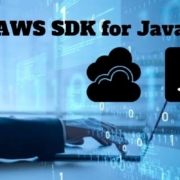How to Connect GitHub, Jenkins, and AWS Like a Real DevOps Engineer?
If you’ve already hooked up a GitHub webhook to Jenkins, ran a build, and deployed a zip to S3 – congrats, you’ve done DevOps. At least, that’s what 90% of blogs would tell you. But in reality, that’s demo-level automation. What happens when you scale it for a team of 20 developers, automate 5 parallel environments, and need to track each deployment’s source?
In 2025, the DevOps world is increasingly modular. Teams want loosely coupled, audit-friendly, CI/CD flows. In major tech zones like Gurgaon, startups and service companies are shifting from static Jenkins pipelines to event-driven, secure GitOps architectures – and facing real challenges integrating the pieces.
If you’re deep-diving through Aws Devops Training, you’ve likely built basic flows. Now it’s time to go beyond: building pipelines that are secure, modular, traceable, and actually used in production.
GitHub and Jenkins – More Than Just a Webhook
Sure, Jenkins can be triggered by GitHub commits. But in real workflows, you need to:
- Secure the webhook with secret tokens
- Use GitHub App credentials, not just personal access tokens (PATs)
- Set up multibranch pipelines that auto-detect new branches
Avoid triggering full pipelines on every commit. Use event filtering (e.g., run only on PRs to main, or on tag pushes).
Also: clone using SSH or token-based HTTPS – never open Git URLs. Store secrets in Jenkins credentials manager.
Code snippet (Jenkinsfile):
checkout scm
Let Jenkins handle SCM via Jenkinsfile detection, reducing manual config errors.
AWS Permissions – Don’t Just Use Access Keys
Here’s where most blogs get lazy: they connect Jenkins to AWS using root access keys. That’s a huge security gap.
Instead, use IAM roles with sts:AssumeRole and session tokens. Jenkins (if on EC2 or ECS) can use instance roles. For self-hosted Jenkins, use aws sts assume-role to create short-lived credentials stored in environment variables.
Table: Secure AWS Access Patterns
| Method | Use Case | Risk Level |
| Root Access Key | Never use | 🔴 High |
| IAM User Key (Static) | Legacy systems | 🟠 Medium |
| IAM Role via STS | Modern, secure pipelines | 🟢 Low |
| EC2 Instance Profile | Jenkins on EC2 | 🟢 Low |
| OIDC Federation (GitHub Actions) | Serverless CI/CD | 🟢 Very Low |
Automating Deployments with Jenkins + AWS CLI
Deployments aren’t just about uploading code. You want version tracking, rollback, and tagging.
In your Jenkins pipeline:
- Use aws s3 cp or aws deploy push for packaging
- Trigger CloudFormation or CDK with tags
- Use –parameter-overrides to pass Git commit hashes into infra
Example stage:
sh “””
aws s3 cp build.zip s3://my-app-bucket/releases/${env.BUILD_ID}.zip
aws cloudformation deploy –template-file infra.yaml \
–stack-name MyAppStack –capabilities CAPABILITY_NAMED_IAM
“””
If you’re working in fast-paced DevOps Training in Gurgaon setups, this tagging is critical. It lets teams know what version was deployed, by whom, and from which commit, especially when multiple developers push code daily.
Jenkins in Gurgaon – Why Cloud Performance Still Fails
Teams in Gurgaon frequently face failed Jenkins builds even on high-powered cloud VMs. The reason? Misconfigured runners. Cloud instances are shared, and the Jenkins agents are not tagged for job-type affinity.
This results in:
- Build jobs clashing with test jobs
- Spot instances being pulled mid-deploy
- Logs being lost due to low disk threshold
Fix this using label-based job routing, autoscaling groups, and persistent log exporters (e.g., send Jenkins logs to CloudWatch or Elasticsearch).
Sum up,
By 2025, DevOps isn’t about just automating builds – it’s about trust, traceability, and scale. A secure GitHub → Jenkins → AWS flow needs secret management, role scoping, artifact tracking, and failover strategies. If you’re eyeing the Best aws Certification for DevOps Engineer, this is the level of depth real employers expect. And if you’re building pipelines in high-demand zones like Gurgaon, these aren’t optional – they’re how you ship fast and stay secure.




